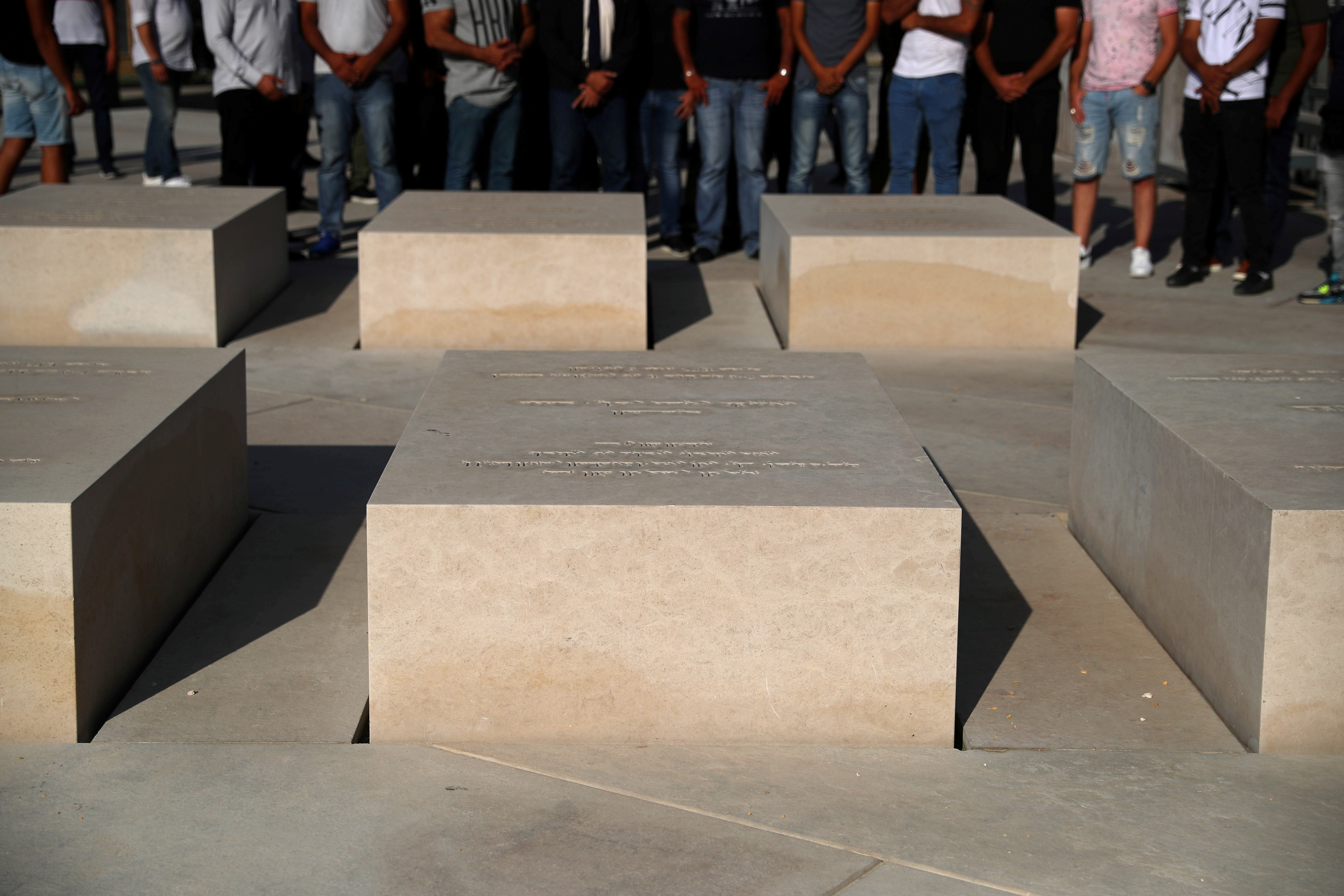Hezbollah member gets life for role in assassination of Lebanon PM
Salim Jamil Ayyash was given five life sentences but remains at large

Your support helps us to tell the story
From reproductive rights to climate change to Big Tech, The Independent is on the ground when the story is developing. Whether it's investigating the financials of Elon Musk's pro-Trump PAC or producing our latest documentary, 'The A Word', which shines a light on the American women fighting for reproductive rights, we know how important it is to parse out the facts from the messaging.
At such a critical moment in US history, we need reporters on the ground. Your donation allows us to keep sending journalists to speak to both sides of the story.
The Independent is trusted by Americans across the entire political spectrum. And unlike many other quality news outlets, we choose not to lock Americans out of our reporting and analysis with paywalls. We believe quality journalism should be available to everyone, paid for by those who can afford it.
Your support makes all the difference.A United Nations-backed tribunal has sentenced a Hezbollah member to five terms of life imprisonment for conspiring to kill former Lebanese prime minister Rafik al-Hariri in the 2005 bombing in Beirut.
Salim Jamil Ayyash, 57 was initially convicted by the Special Tribunal for Lebanon (STL) in August on five charges including conspiracy to commit a terrorist act and homicide over the deaths of Hariri and 21 others in the attack on the capital’s waterfront.
Friday’s hearing determined his punishment which was the maximum sentence the court is able to hand down. However, he remains at large and so is unlikely to face jail time.
Three other members of the Iran-backed Shia movement were acquitted in August due to insufficient evidence despite a lengthy trial and nearly a decade of investigation.
"The attack was intended to spread terror in Lebanon and indeed did," Australian Judge David Re said in reading out the court's decision.
"The trial chamber is satisfied it should impose the maximum sentence for each of the five crimes of a life sentence to be served concurrently."
Hariri's assassination plunged Lebanon into what was then its worst crisis since the 15-year civil war, setting the stage for years of conflict between rival political forces.
"Mr Ayyash's crimes are extremely grave, he had a central role in the attack," Judge Janet Nosworthy said.
"Lebanon is a parliamentary democracy, its politicians and leaders should be removed from office at the ballot box rather than by the bullet or a bomb," she said.
Only two judges and a small team of court officials were present in the courtroom on Friday due to coronavirus restrictions.
Judge Nosworthy, said the assassination "most probably had to have involved a state actor" and that the state “with most to gain from Mr. Hariri's elimination most likely was Syria”.
Judge Re also strongly suggested that Hezbollah has been shielding Ayyash from justice, citing speeches by its leader warning against any attempts to arrest any of the suspects when they were indicted by the tribunal.
However, the judges once again shied away from pointing the finger of blame directly at Hezbollah that has repeatedly denied involvement in the killing.
The initial verdict in August verdict was met with disappointment among some areas of Beirut because the judges said there was a “no evidence” the leadership of the Lebanese militant group Hezbollah or the Syrian government were involved in the 2005 suicide truck bombing.
This is despite the fact the judges also called the assassination “undoubtedly a political act” and pointed out that in the months preceding the bombing, Hariri had becomce a vocal supporter of reducing the influence of Syria and Hezbollah in Lebanon providing the likely motive for the attack.
The Washington Post, citing current and former security officials, said that Ayyash had carried out at least four other assassinations under orders from Hezbollah, as part of a team known as Unit 121, which the paper said was controlled by Hezbollah’s top leadership.
Mr Hariri was killed on 14 February 2005 as he got into his car after visiting the Café de l’Etoile by parliament, where he served as an MP.
As his motorcade passed along the seafront corniche in the capital, a truck bomb tore through his vehicle. It left a 2m-deep crater and ripped out the facades of the surrounding buildings, killing 21 people and injuring 200 more.
The assassination sent shockwaves through the region and the world igniting nationwide protests later dubbed the Cedar Revolution within Lebanon.
Following intense pressure from the UN, France and the US, it also culminated with Syria pulling its troops out of Lebanon after nearly 30 years.
Back in August Mr Hariri’s son Saad Hariri, the country’s now prime minister designate, said he was satisfied with the ruling saying that it proved that “the time when political crimes in Lebanon used to go unpunished are gone”.
On Friday the trial chamber recommended that Lebanon establish a nationwide compensation scheme for victims of crimes and that the Special Tribunal should set up a trust fund for victims made up of voluntary contributions.



Join our commenting forum
Join thought-provoking conversations, follow other Independent readers and see their replies
Comments